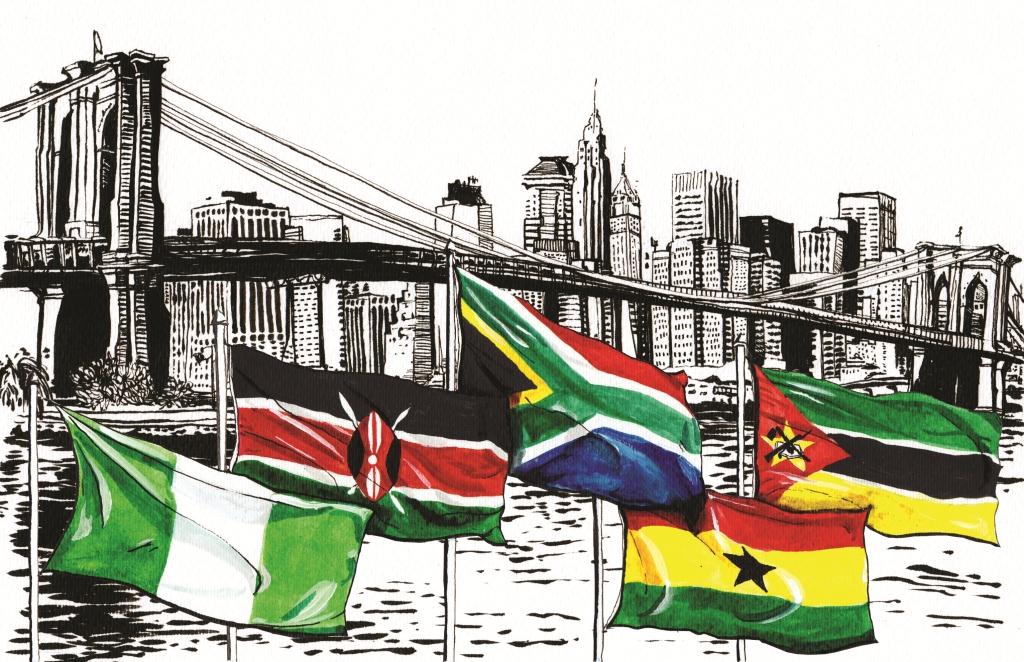Africa continues to grip New York and is not likely to let go of its tight hold anytime soon. 2013 was an exciting year of celebration and progress for all things Africa and there is no doubt that this will continue well into 2014 and beyond. It has been impressive to hear policymakers, entrepreneurs and media so willing to talk about Africa in a new and different way, so much so that some commentators are now complaining that they are tired of hearing that ‘Africa is rising’. Some people are never pleased!
It is not just in New York, however—other parts of the East Coast, such as Washington D.C., have also been highlighting African progress. In October, I was honored to moderate a panel on African technology and entrepreneurship hosted by the Congressional Black Caucus at their annual Africa Braintrust event. The Braintrust, hosted by Californian congresswoman Karen Bass, who has been deeply passionate about the relationship between Africa and the United States for many years, also featured the presidents of Somalia and Burkina Faso, Hassan Sheikh Mohamud and Blaise Campaoré respectively.
The annual United Nations General Assembly was also well attended. British fashion designer Ozwald Boateng appeared with a throng of his celebrity friends including actor Jamie Foxx, Nigerian oil tycoon Kola Aluko, millionaire Tony Elumelu, and a number of key people from the African Development Bank. Boateng introduced his latest non-fashion venture, the Made In Africa Foundation, which aims to lift 200 million Africans out of poverty through infrastructure projects and the new Africa50 Fund. They had the privilege of ringing the NASDAQ stock market opening bell to mark the launch of the fund. Nigeria’s president, Goodluck Jonathan, also paid a visit to the New York Stock Exchange to ring the closing bell, making history as the first Nigerian to do so.
The African diaspora in New York has been getting a lot more attention from the media lately. One of these is Amini Kajunju who is the president and CEO of the Africa-America Institute. She will be honored in 2014 as the Advocate of the Year. And who can forget that yet again an African—Geoffrey Mutai from Kenya—won the New York City Marathon in an incredible time of 2:08:24. In fact, eight of the top 10 placed athletes were from Kenya, Uganda and South Africa. Impressive stuff.
Another New Yorker making waves is Derrick Ashong. The television presenter and musician is the first African with his own show on American network TV. He is an anchor of Latino TV channel Fusion’s new show, where he covers politics, cultural events, the day’s big headlines as well as the entertainment and social media trends that matter most to young Hispanics and millennials. Although he is not covering African topics directly, it is important that someone like him represents the continent in this way.
Loading...
An exciting arrival for 2014 is the New Africa Centre, based in an upscale part of Harlem. The institute is spearheaded by Mo Ibrahim and his daughter Hadeel and aims to showcase the best of African art and intellect. The Ibrahims will be raising up to $60 million to renovate the center and host an art gallery, museum, theater, policy institute and executive club. It is expected to be a magnet for Africans, Afrophiles and investors. Guests at the opening included Bono, Harry Belafonte and the reverend Jesse Jackson, Nelson Mandela’s grandchildren, musicians Youssou N’Dour and Angélique Kidjo and basketball legend Dikembe Mutombo.
“There is no African institute in this city where we can exhibit our art and culture and hold debates about African issues,” says Hadeel, who is to be the co-chair of the new center’s board.
African business continues to thrive with New York private equity groups, such as Blackstone, KKR and Pinebridge Investments, investing in the continent. Such companies believe that there is much more to come in terms of Africa’s growth and development and that there are huge economic opportunities available. This is a good sign, particularly as the Obama administration and other vested parties desire an increase in foreign direct investment.
Here’s to Africa, onwards and upwards! FL
Loading...
